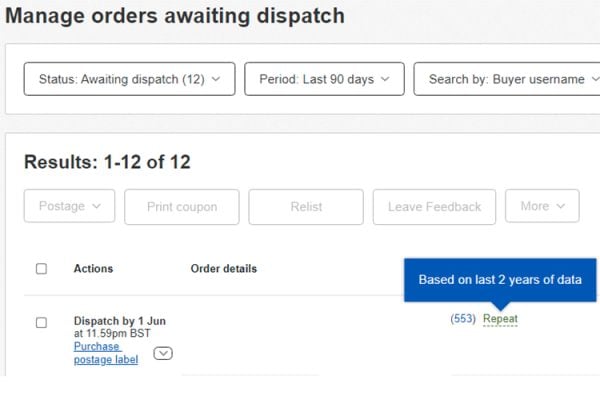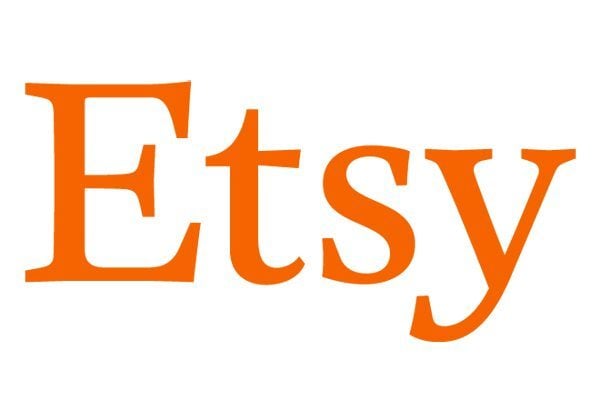For the last five years Christian Braun was co-founder and CEO of ClockWorx Ltd (best known under one of its trading names Auctioning4u) which has gone into administration.
There has been much speculation regarding the business and today Christian shares his thoughts and experiences of the trading assistant business model with an overview of the company, its history, the reasons for its demise and possible lessons for survivors in the industry.
There is a lot of discussion of franchised versus company owned trading assistant models. I believe that discussion to be beside the point; the real question is if one can run a commercially viable trading assistant business (we know it works as a hobby from home).
Our Consumer Segment
The initial idea was to help consumers sell unwanted possessions on eBay. We started the business almost at the same time as Auctiondrop in America and Dropshop in Germany. We became a Trading Assistant business in April 2003 and soon opened our first shop in West London.
At the height of our consumer activity we had 13 locations; 11 in Greater London, one in Manchester and one in Brighton. Some of these were 3rd party locations in storage companies, some company owned stores and two were franchised.
We also had a fleet of four home collection vans. We exited the business in 2007, the shops in the summer and the vans around October. We sold the brand Auctioning4u at the end of the year to the operators of Serial Sellers who trade on a smaller scale from South London.
Main Issues
- Consumer Acceptance
In our experience there are principally two groups of users: those who don’t want to pay for a service they could provide themselves (even if more often then not do not follow through) and those who value their own time and therefore have no problem paying for services. The latter group however is time poor and/or cannot be bothered to bring their unwanted possessions in.
The only attractive consumer segments are those that undergo a life changing event such as a move, relocation, death in the family or children leaving the house. Most of these are hard to market to; we found only the relocation market to be attractive – the target market is affluent, time poor prior to the move and everything has to go before leaving the country.
- VeRO
The current VeRO programme (eBay’s programme to allow brand owners to stop sales of counterfeits and trademark infringing items) makes it impossible to run a sizeable trading assistant business. The combination of the sheer size of the problem (more than 18,000 firms monitoring eBay for alleged infringements), the lack of any incentives of those firms to show restraint in their take-down actions and eBay’s three strikes out policy are lethal.
eBay closed our main eBay shop four times over the years meaning almost unbearable pain and costs for a trading assistant. As an emergency measure we had to stop taking fashion items in the summer last year making the shops unviable. But even non-fashion items will become a problem over time.
I believe that as a matter of policy auction sites such as eBay need to be put on the same footing as ISPs; i.e. brands should be allowed to serve take-down notices but sellers should equally be able to defend themselves by declaring the item to be genuine or not infringing a trademark. If the brand feels strong enough they then ought to take the seller to court but leave the auction site outside. With the current legal framework it is just a question of time until general auction sites will have to close due to legal risks (try selling a Tiffany product these days on eBay and you will understand what I refer to). Unless the VeRO issues are going away I do not think that it is possible to offer services to consumers on a commercial basis.
Our Charity Segment
With Blue Ocean Solutions we had a strong partner in the charity segment and at our peak served more than 200 charity shops. However, the value of donations was never sufficient and training the charities proved too difficult (our charity shops had an average of 18 employees, most with very little IT skills). The fact that being a trading assistant is labour intensive and charities principally do not pay for their labour did not help. We started to close our programme at the end of 2006 and I do not believe that a charity programme can work on commercial terms.
Business Segment
Started in 2005 this segment soon became the most important part of the business. This month alone we sold more than £500,000 of eBay GMV. That being said we believe that the VeRO problems also impact this business. We have had significant problems selling fashion items or other luxury products for a number of our clients including department stores and jewellery companies (we even tried to sell a product for one brand owner only to be stopped by one of the same brand owner’s employee through the VeRO programme) and were so worried that we sold off all non consumer electronic and IT clients to XS Items, a competitor in late 2007. Another problem is the fact that eBay is only a partial solution for companies’ problem stock (returns and overstock); most of the times clients will have stock that either has no market on eBay or cannot be sold due to its low value.
The high number of Non Paying Bidders also added to our problems rising to 15% in the last few months (eBay sellers should be able to insist on immediate payment, which would be no different to any other ecommerce site).
This segment made profits for the company; particularly once we had specialised (in consumer electronics and other IT equipment through our brand Clocktronix and in vintage and collectible toys through our brand The Toy Auctioneer).
Closing
In the end our overhead costs put in place when we had wanted to built a national network, in particular our 45,000 sq.ft. processing centres and marketing costs to build the Auctioning4u brand and the relative low margins on the business segment made new investments into the company an unappealing choice and leave the board no other choice than to close.









11 Responses
Christian,
I’m sorry to hear that A4U has been wound up and personally believe that there is space for such a business in the eBay UK ecosystem.
I think your analysis of the problems is fair. In particular, the unfair pressures of VeRO is a point well made and one I’ve heard from sellers again and again. In these cases eBay is a ‘hanging judge’ and faceless.
That said, two things always struck me about A4U. Firstly, that you had an awful lot of staff. More than 100, as I seem to recall and I always thought that that seemed a lot. Secondly, on your main ID at least, it seemed like you got a lot of negative feedback (for P&P costs and despatch delay, as I remember). Possibly because you were being judged more harshly as a professional outlet or because you had a some kinks in your processes.
Best wishes to you, and the staff.
dw
I find it almost unbelievable that A4U could be engaged to sell product for a brand owner, and than for an employee of the said brand owner to VERO the auctions!!
That just seems to prove the point that VERO is misused, and those submitting VERO takedown notices don’t apply due dilligence to ensure that they are valid 🙁
True entrepreneur’s often fail, but they always bounce back with something better.
Good luck with your next venture Christian.
Having had time to digest this information I have a couple of questions which remain unanswered re trading assistant business:
1) Is “building a brand” a worthwhile exercise for a trading assistant? Sure you need a brand, but does it need to be a costly exercise or can you target your optimum customers without great expense?
2) Bearing in mind the only profitable exercise appears to be disposal services for businesses is it even worth being a trading assistant or is it better to simply purchase the stock as millions of other eBay sellers do.
3) Probably the most interesting question… could Auctioning4u have survived had it not spent millions building a brand and investing in personnel and processing centers initially aimed at appealing to consumers? Would the company still be trading if they had focused on business clients from day one?
A quick answer to some of the questions here.
Since the consumer proposition does not work at the moment there is no point in brand building.
The part of our business that sold consumer electronics did make money and therefore would still be in business. However, it would never be a large or very profitable business.
We had initially try to build a nationwide retail chain similar to say Boots and for that reason had a large team of software developer, marketing executives and part-time experts for various subject areas (for example carpets), to generate the current revenues we would have taken a commercially available software package and only needed a team of less than 20.
Hi Christian, thanks for that, very useful information for anyone that follows in your footsteps 🙂
“Another problem is the fact that eBay is only a partial solution for companies’ problem stock (returns and overstock); most of the times clients will have stock that either has no market on eBay or cannot be sold due to its low value.”
Now he tells us!!
HI
This is a message for anyone who has worked or still works for clocktronix.
in the last week i have purchased 4 items totalling over £1000. this is since the 31st jan . the adminstrators are in at this point i think, will i still get the items i bought, any ideas anyone.. ?
thanks
Antony (and anyone else): while of course you’re welcome to leave comments here and we hope everything is sorted successfully for you, please do not consider leaving comments here or elsewhere on TameBay as communicating with Clocktronix or any related companies.
In the end our overhead costs put in place when we had wanted to built a national network, in particular our 45,000 sq.ft. processing centres and marketing costs to build the Auctioning4u brand and the relative low margins on the business segment made new investments into the company an unappealing choice and leave the board no other choice than to close.’ – Christian Braun
Thanks for sharing these thoughts on the problems of large scale ebay trading. I bought great items from auctioning4u on ebay and was surprised to see the change of ebay trading name to clocktronix, which must have been when you sold off the auctioning4u brand name to temporarily combat cash flow problems.
The worst thing to do in business is to take on expensive long-term leases on business premises, which add to overheads, incur inflexibility, and cause worries when cash flow problems occur. It’s the same with taking on a lot of staff on high salaries. If you get cash flow problems, you can’t negotiate to reduce the fixed overheads like rent and salaries, so whatever bank reserve you have and other assets are soon lost to cover overheads, then cash flow doesn’t pick up the business is finished, the bank pulls the plug. But I suppose you desperately needed the warehousing and storage space at the time you got it.
Recently you have specialised in selling quality refurbished computer equipment, and it would be nice if you could somehow adapt and use this business model to break the virtual monopoly of high street retail chains like PC World on the new laptop and mobile market.
I think what you should do in future, if and when you can sort out the present difficulties, is to take a look at the possibility of gradually establishing a business on ebay to compete with firms like PC World, e.g., bulk buying from manufacturers (to get low unit costs) and auctioning a range of popular laptops on ebay. New laptops, mobiles, etc., come in small packaging so vast warehouse space is not required.
Auctioning (not fixed price) is obviously the fairest way to sell, and should attract customers on that basis. I think that the reason that nobody is currently bulk buying new laptops, new mobiles, etc., and then auctioning them on ebay is that they’re scared the business model won’t work, people won’t bid enough, and they’ll make a loss. However, if the first few customers get a good deal, they’ll do advertising for you by telling others and leaving extremely good feedback. You can write off initial problems as a loss-leader effect.
Possibly the first few will make a loss if you start selling from a brand new ebay account with zero ratings, but with positive feedbacks pouring in (which should be no problem, if you are selling new, sealed boxed equipment), hopefully it will snowball quickly with everyone using it to buy new hi-tech products at fair (auction) prices.
The problem here would be to raise the capital to bulk buy large quantities of in-demand goods to sell in sufficiently large volume that the unit price becomes small enough that you can afford to undercut stores like PC World by auction in a sustainable way.
Possibly donating a percentage of the selling price to charities directly via ebay would help cement customer loyalty, etc.
Anthony – If you’re owed £1000 or more the police will normally get involved, they won’t touch eBay disputes less than a thousand, but I believe they will (have an undertaking with the Home Secretary?) for the larger amounts. 👿